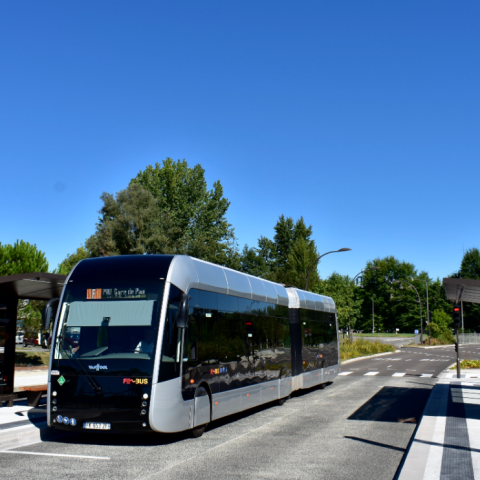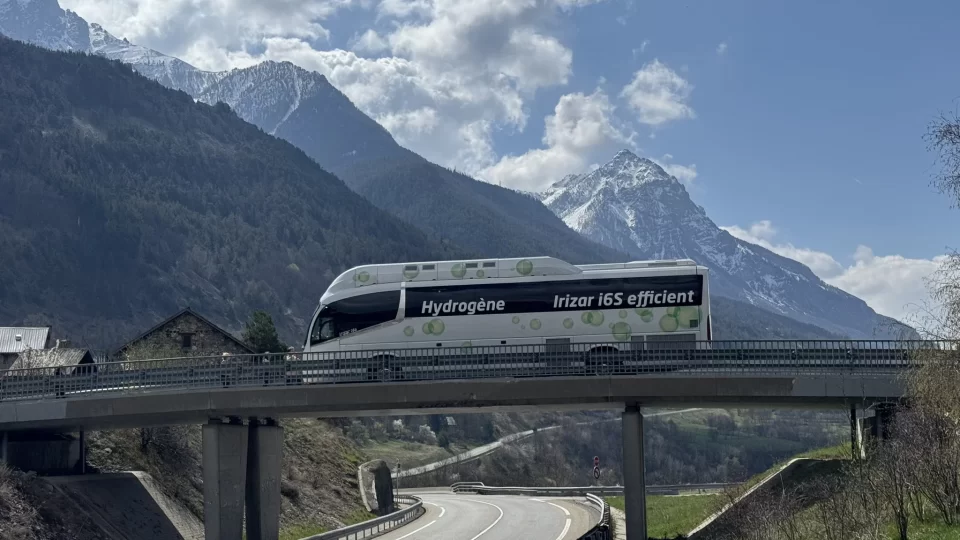Hydrogen pioneer Pau (France) now consider BEV technology amidst soaring H2 costs
The city of Pau in southern France attracted attention in 2019 with the introduction of eight Van Hool ExquiCity 18 fuel cell buses, marking a pioneering moment for the deployment of hydrogen buses in regular public service. These buses, part of the H2-BRT (Bus Rapid Transit) system known as Fébus, aimed to modernize the region’s […]

The city of Pau in southern France attracted attention in 2019 with the introduction of eight Van Hool ExquiCity 18 fuel cell buses, marking a pioneering moment for the deployment of hydrogen buses in regular public service. These buses, part of the H2-BRT (Bus Rapid Transit) system known as Fébus, aimed to modernize the region’s transport offerings and enhance its appeal as an innovative living space.
Despite the initial excitement, Pau faced significant challenges over the next four years, including nearly doubled costs for hydrogen (H2) fuel and operational difficulties.
Now Pau turns to battery-electric technology
Jérémie Neillo, the transport operations manager in Pau, recently revealed to the French magazine La Gazette des Communes (later picked up by German trade media Omnibus.news) that the municipality is now looking to transition to battery electric vehicle (BEV) buses. Neillo explained that hydrogen had proven too difficult to handle on a daily basis, prompting the decision to purchase eight BEV buses annually for the next decade.
Neillo emphasized the ongoing challenges in maintaining the fuel cell buses’ operational efficiency, leading the municipality to negotiate maintenance contracts with project partners GNVert (gas station operator) and Van Hool (bus manufacturer) to control operating costs, which reportedly amount to nearly one million euros per year. Despite the high costs, according to local media, Neillo defended the initial decision to invest in fuel cell buses, citing government support for hydrogen drives at the project’s inception. However, he acknowledged that if the project were initiated today, it would be more questionable.







